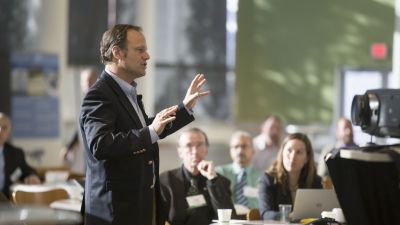How to Inspire and Connect Through Powerful Communication

Words have immense power. They can uplift us or bring us down. They can motivate us or discourage us. They shape our reality and relationships in profound ways.
How we speak and what we say influences how others see the world and themselves. So we must use language thoughtfully and intentionally.
In this guide, we’ll explore:
- How the words of role models shape children’s self-image
- Why we imbue certain people’s words with more power
- How great leaders inspire with language
- The importance of delivery and communication skills
- Mindful speaking through empathy and sincerity
- Choosing words that spread light, not darkness
Let’s dive in and harness the magic of words together.
Words Can Shape a Child’s Identity
The words we use with children carry immense power to shape their self-image and view of the world. Kids learn who they are largely through the language of parents, teachers and other influential adults.
That’s why it’s crucial we speak to children mindfully, using language that empowers and builds them up.
Here are some tips:
- Praise effort over innate talent. Saying “You worked so hard!” encourages a growth mindset.
- Compliment character and values, not outside appearance.
- Validate their feelings. Say “I understand why you feel upset.”
- Use encouraging language like “You can do it!” instead of shaming.
- Compliment the process. “I like how you thought through that problem.”
- Avoid critical and cruel words. Don’t call names or use sarcasm.
- Apologize for mistakes. Model humility and grace.
The language we expose children to becomes their inner voice.
Choose words that build up their self-worth. Help them see themselves as valued members of the community with dignity and potential.
Handle Their Words With Care
A child’s self-esteem and view of the world is shaped heavily by the words of their parents and other influential adults. If a father constantly calls his son “stupid” or “worthless,” that child will grow up believing it.
Even if the father doesn’t really mean it, the damage is done.
The Power Differential of Words
We assign more significance to the words of people we admire or who hold authority. The greater the power differential, the stronger this persuasive effect becomes. For example:
- Celebrities: We pay attention when famous people endorse products or causes. Their platform magnifies their reach.
- Politicians: Skilled orators like Churchill or Reagan can influence national sentiment through rhetoric. Their office amplifies their voice.
- Experts: Thought leaders in their field are very persuasive. For instance, doctors, scientists, professors. Their credibility gives weight to their words.
- CEOs and executives: A leader’s speech sets the tone and vision for an entire organization. Their position grants influence.
- Parents and teachers: Authority figures that children look to for guidance and approval. Impressionable youth imbue their words with meaning.
- Influencers: Social media stars now shill products because their platform gives them sway over followers. Their popularity becomes influence.
Because of this power imbalance, people in positions of influence have an obligation to speak responsibly. Their words carry more weight, so their potential impact amplifies. Use your influence wisely.
Inspiring and Uniting Through Rhetoric
Great leaders and orators throughout history have skillfully used language to engage people and rally them to action.
Think of iconic speeches like:
- Abraham Lincoln’s poetic Gettysburg Address, appealing to shared ideals of freedom and healing after the Civil War.
- Franklin D. Roosevelt saying “The only thing we have to fear is fear itself” during the Great Depression. His words encouraged courage in a desperate time.
- Winston Churchill’s dramatic rhetoric fortified British solidarity against Nazi invasion during World War 2.
- Martin Luther King’s famous “I Have a Dream” speech unified the civil rights movement behind an inspiring vision of the future.
- John F. Kennedy’s bold “Moon Shot” speech motivated America to achieve the shared goal of reaching the moon.
These speakers moved millions by crafting messaging that aligned to the moment and gave people hope.
Anyone can harness rhetorical techniques to inspire others:
- Paint a vivid aspirational picture. Help people imagine a better future.
- Use poetic and symbolic language. Metaphor, rhythm and repetition are powerful.
- Weave in shared history and values. Connect your vision to your audience’s identity.
- Make it personal with real stories and anecdotes. These forge emotional investment.
- Offer concrete steps to realize the vision. Don’t just inspire, guide action.
With care and skill, language can rally people behind your cause or organization. Think deeply about your goal and craft an inspiring narrative.
Why Delivery Technique Matters
Words themselves carry innate power, but style of delivery also greatly impacts persuasiveness. Form matters just as much as content when speaking publicly.
Mastering communication techniques makes your message more compelling.
- Eye contact: Look at people as you speak. Don’t just stare at your slides or notes. Engage your audience.
- Vocal variety: Modulate pitch, volume, speed and inflection. Avoid falling into a monotonous drone.
- Confident posture: Stand tall with open gestures. Avoid crossed arms and hunching, which can look closed-off or insecure.
- Facial expressiveness: Let your face convey emotion appropriately. Smile, frown, raise your eyebrows. React naturally.
- Limit vocal fillers: “Uhhh” and “ummm” hurt your credibility. Better to thoughtfully pause between ideas.
- Pacing: Speak neither too fast nor too slow. Use strategic pauses. Don’t rush through your content.
- Enthusiasm: Passion for your topic is contagious. But don’t overdo it. Authenticity matters.
- Clarity: Articulate words precisely. Enunciate properly and avoid mumbling.
- Brevity: Make every word count. Don’t ramble or get bogged down in minutiae.
- Humor: When appropriate, sprinkle in some light humor. Know your audience. Don’t overdo jokes or inappropriate humor.
Practice public speaking to sharpen these skills. Classes, conferences and groups like Toastmasters provide great experience.
Recording yourself helps spot areas for improvement. With preparation and experience, anyone can become an engaging speaker. Sharp communication takes work but pays dividends.
How to Become a Mindful Speaker
Beyond polished delivery, the wisdom of what you say also matters greatly. Speaking mindfully from a place of empathy, cultural awareness and sincerity imbues your words with credibility and influence.
Here are some tips:
- Consider your audience and frame messages thoughtfully. Meet people where they are. Don’t make assumptions.
- Check your own biases and privilege. Be aware of lens you see the world through. Don’t further marginalize vulnerable groups.
- Make space for others to share experiences different from yours. Listen earnestly without interruption or defensiveness.
- Don’t assume your truth is universal. Different cultural backgrounds shape perspective. Seek to understand.
- Admit when you’re wrong or lack knowledge in an area. Model humility. Then seek wisdom from others to grow.
- If your words hurt someone, apologize sincerely rather than get defensive. Have an open dialogue to understand each other.
- In discussions, stay calm and reasonable even if others get upset. Don’t escalate the situation unproductively.
- Offer encouragement and praise. Validate others’ talents and efforts. People need to feel seen.
- Express sincere gratitude when warranted. Thank people for their time, efforts, insights or collaboration.
With empathy, cultural awareness and emotional intelligence, we can use language to foster mutual understanding, not division. Think critically about the impact of your words.
Spread Light With Your Words
Words can uplift our shared humanity or sow division. As the Bible says “Gentle words bring life and health; a deceitful tongue crushes the spirit.”
We must take care not to let our speech take a harmful turn. Here are some reminders:
- Avoid hate speech targeting groups based on identity. This fosters hurt and divides us.
- Don’t spread misinformation online. Verify facts from reputable sources before sharing.
- Refrain from gossiping about people. Don’t divulge private details about others.
- Be sparing with criticism, especially over minor issues. Look for positives to highlight.
- Don’t be unkind behind people’s backs. Only say what you would say to their face.
- Consider carefully before shaming people on social media. Words have consequences.
- Uplift people. Share sincere compliments about what you admire or appreciate about them.
- Express encouragement and belief in others. Remind them of their strengths and light within.
- Share wisdom and teach skills. Use your experience and knowledge to empower people.
As we cultivate self-awareness, our speech can evolve from ego-driven to purpose-driven.
Language gives us power to tear down or raise each other up.
With mindful awareness, let us speak life, truth and redemption into the world.
In Summary
The right words at the right time can inspire movements or teach generations. Careless language can wound and divide. As people gifted with speech, we must wield this power responsibly.
Language is powerful magic.
Consider how your words might uplift or diminish those who hear them, especially impressionable youth. Harness language not to serve ego, but for good. Speak with sincerity, meet people where they are, and summon our shared humanity.
Our words weave the story of who we are.
Words create meaning. The future begins in the words we utter today. With hope and courage, let’s speak life into the world, mend divisions and spread more light.













